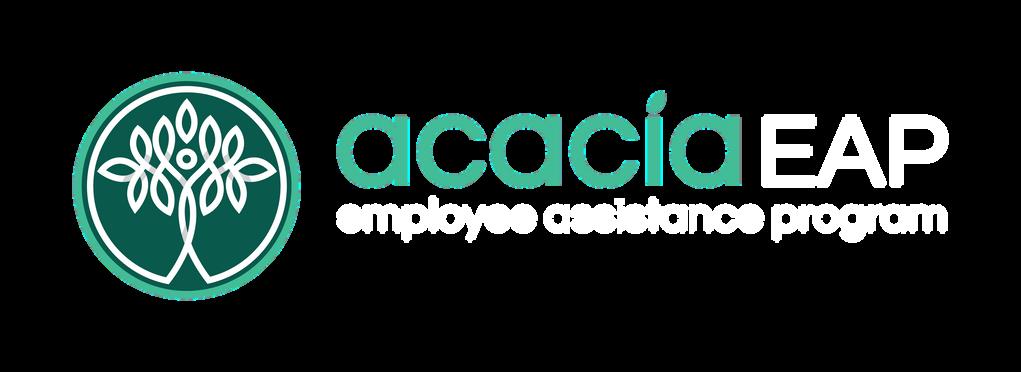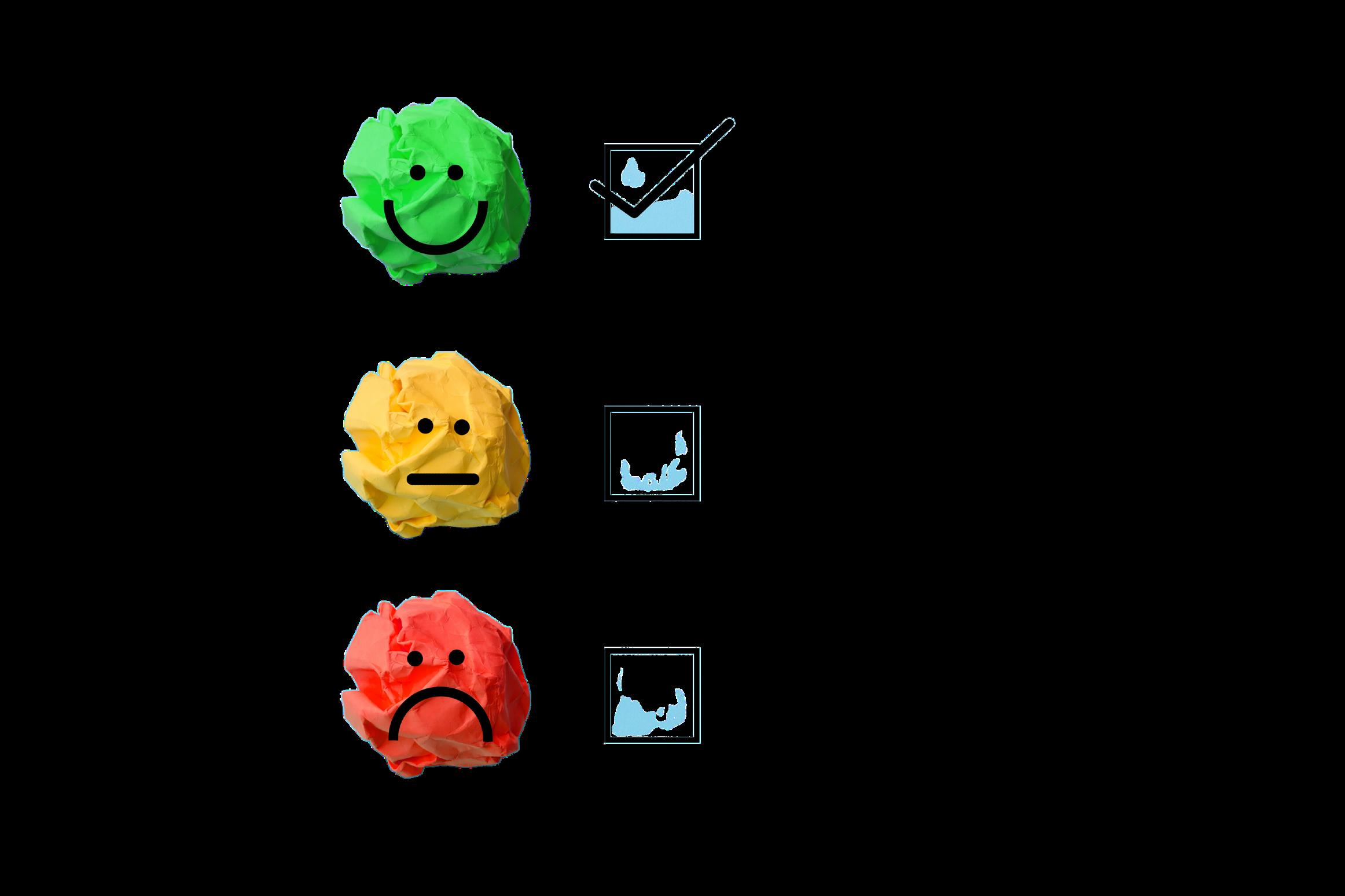Working Away
Understand the difficulties and practical benefits of working away from home in other countries, regions, or communities.


Negativegossipcanhavea significanteffectonindividuals andworkplaceculture.





Understand the difficulties and practical benefits of working away from home in other countries, regions, or communities.


Negativegossipcanhavea significanteffectonindividuals andworkplaceculture.





It is hard to believe that the halfway mark for 2023 is fast approaching March to June is often the busiest period for Acacia, and the demand for our services this year has been no exception.
With rising cost of living pressures, stress in the lead up to end of financial year, and the usual challenges of day-to-day life, it is important that we take a proactive approach to maintaining and protecting our wellbeing.

At Acacia, we have a keen focus on innovation and always strive to improve the accessibility and quality of our services for our clients. I’m excited to announce the upcoming launch of our latest development project, Appointment Hub, in the latter half of this year
Appointment Hub is a self-service booking portal that allows clients to schedule and manage appointments via an online platform Our hope is that this new platform will reduce the barriers of access and allow individuals to engage with timely support that is tailored to their personal needs. We are excited to share more details about this over the coming months


Performance reviews can be a stressful and anxiety-provoking experience. When engaged well, performance conversations can be imperative to an employee’s engagement and retention But they can also be a nerve-wracking process for both employees and managers alike.
Performance reviews are a collaborative, personalised conversation that occurs usually between a manager and employee about achievement, development, and growth The process is – ideally – a way for organisations to support their employees by providing structure, goals, and a shared
As an employee, it’s important to prepare and have some things in place before, during, and after the conversation to ensure you get the best out of your performance review

Firstly, remember that performance reviews exist to support you in your role Think about longer-term goals in terms of your role, but also your career This can assist with setting goals for your professional development.
As a part of your preparation, reflect on the things you have done well, things you have achieved, and any areas you feel you could improve or further develop in. Ensure you bring some examples of your achievements as well as any positive feedback you have received from colleagues, clients, or stakeholders (it might help to write these examples down as reminders during your review).

Performance reviews are a great time to discuss with your manager any strategies or development opportunities to assist you
Try to learn what to expect during the conversation For example, is there anything you need to fill out beforehand like a written evaluation? This can help you understand what questions will be asked. You might also ask another colleague that has been through the process before
Further, think about your organisation’s goals and vision for the next year and in the future and how this aligns with your goals Having a better understanding of them will lead to a more effective conversation on how you can continue to contribute to your team.
Lastly, remember that performance reviews are a two-way conversation between yourself and your manager Think about what projects or tasks you would like to be involved with as well as how you can support your leader in their goals and objectives
Leaders too must prepare for performance reviews Refining how you plan and conduct these conversations can lead to more effective outcomes around these challenging but essential meetings.
First off, employees must have clear standards by which their performance will be evaluated. Being clear about expectations around performance and how these align with the wider strategy and vision of the organisation is beneficial in numerous ways Employees can focus on what is important for them to work towards as well as it assists them in preparing for their performance review
Ensure you book plenty of time to have a thorough review, providing for a two-way conversation to occur around important aspects of performance Allow time for the employee to respond to your feedback, as well as for you to convey you are really listening Reflecting back to an employee what you heard them saying and asking follow-up questions can assist with developing further understanding and allow for a more effective conversation to occur.
If there are things you feel an employee needs to improve or work on, think about what may assist the employee to make those improvements before the review begins.

For example, is further training or coaching going to be helpful? Are there other processes that could be implemented?
Any feedback that you provide should be specific around the employee’s behaviour and within the control of the employee Ensure you prepare examples and that the impact of their behaviour on outcomes is also clear.
Remember, there should not be any surprises on the day of a performance review Feedback to employees should occur regularly throughout the year, both positive and also those things that may require improvement or further development

Lastly, performance reviews should end with some agreed next steps and follow-up regarding the comments and feedback provided These steps should be ongoing throughout the year, and may require the implementation of things such as regular catch ups or informal check ins to assist.
Effective performance conversations are integral to the success of an organisation and need to be part of an organisation’s wider strategic development around performance management While these conversations may feel stressful and nerve-wracking, utilising some of the above points and putting in the time to prepare can ensure employees and leaders get the most out of the performance review process

Our gut is often referred to as the "second brain" and for a good reason. It is home to trillions of microorganisms, including bacteria, viruses, and fungi, collectively known as the gut microbiome.
These microbes play a vital role in our health, not only in the digestive system but also in the immune system. In fact, the health of our gut and the microbiome can significantly impact our immune function
The gut microbiome is responsible for a wide range of bodily functions, including digestion, absorption of nutrients, and the synthesis of vitamins and other compounds However, perhaps its most crucial role is maintaining a healthy immune system. The gut is home to 70 percent of our immune cells, making it a critical site for immune function
When the gut microbiome is imbalanced, it can lead to dysbiosis, a condition where harmful bacteria dominate the gut This can lead to inflammation, decreased immune function, and other health issues Dysbiosis has been linked to a range of conditions, including autoimmune disorders, allergies, and even mental health issues
To maintain a healthy gut and immune system, we need to focus on proper nutrition. The following seven foods and nutrients are particularly beneficial for gut health and immunity

Prebiotics are a type of dietary fibre that feed the good bacteria in the gut, promoting their growth and proliferation Some examples of prebiotic foods include asparagus, garlic, onions, bananas, and whole grains Consuming prebiotics can help improve gut health, boost immune function, and reduce inflammation
Probiotics are live bacteria and yeasts that are beneficial for gut health They can help restore the balance of the gut microbiome, improve digestion, and boost immune function Some examples of probiotic foods include yogurt, kefir, kimchi, sauerkraut, and kombucha
Omega-3 fatty acids are a type of polyunsaturated fat that is essential for overall health. They have been shown to reduce inflammation, improve heart health, and support cognitive function
Omega-3 fatty acids can also help improve gut health by reducing inflammation in the gut and promoting the growth of beneficial bacteria Good sources of omega-3 fatty acids include fatty fish (such as salmon), flaxseeds, chia seeds, and walnuts.
Polyphenols are a type of antioxidant found in many plant foods. They have been shown to reduce inflammation, improve gut health and boost immune function Some examples of polyphenol-rich foods include berries, dark chocolate, green tea, and red wine.
Vitamin D is a fat-soluble vitamin essential for strong bones, teeth, and overall health However, it is also critical for immune function Vitamin D deficiency has been linked to an increased risk of infection and autoimmune disorders. Good sources of vitamin D include the sun and fortified foods (such as milk and cereal)

Zinc
Zinc is a mineral that is essential for immune function It plays a role in the development and function of immune cells and helps reduce inflammation. Zinc deficiency has been linked to an increased risk of infections and other health issues Good sources of zinc include oysters, beef, chicken, nuts, and seeds
Fibre
Fibre is a type of carbohydrate that is essential for good health It promotes digestion, supports the growth of beneficial bacteria in the gut, and helps reduce inflammation Good sources of fibre include fruits, vegetables, whole grains, and legumes
In conclusion, maintaining a healthy gut and a robust immune system is crucial for overall health and wellbeing
Our gut microbiome plays a significant role in regulating immune function An imbalance in the gut can lead to dysbiosis, inflammation, and other health issues
The good news is that we can take steps to improve gut health and support immune function through proper nutrition By incorporating prebiotics, probiotics, omega-3 fatty acids, polyphenol, and other nutrientdense foods into our diets, we can help promote the growth of beneficial bacteria, reduce inflammation, and support a healthy immune system.
Eating a diverse array of whole foods and limiting processed and high-sugar foods can also contribute to overall gut health and immune function. By prioritising our gut health through proper nutrition, we can support our immune system and, ultimately, improve our overall health and wellbeing
If you have concerns about your gut health, consider talking to an Accredited Practicing Dietician Nutritional Support may be a service included as a part of your EAP offering You can contact Acacia today to find out more about this service.

We here at Acacia EAP acknowledge the Jagera people and the Turrbal people as the Traditional Custodians of Meanjin, the lands and waterways on which our head office is located. We pay our respects to Jagera and Turrbal Elders past, present, and emerging. Acacia also extends our respect to all Elders and First Nations Peoples across Australia.

The word reconciliation has many meanings; however, when spoken to in the context of reconciliation of our Nation, it is about forging, strengthening, and improving the relationships between Aboriginal and Torres Strait Islander cultures and non-Indigenous peoples to create a more united Australia that stands opposed to injustice, inequity, and racism.
With this in mind, it is evident that the reconciliation of our Nation is the personal responsibility of everyone. We all hold the capacity to ensure we experience not only a safe, inclusive, and supportive community but one that acknowledges and accepts our shared history
While every day is an opportunity to take steps closer to reconciliation, National Reconciliation Week – this year taking place from 27 May to 3 June – presents an opportunity for us to act with purpose and focus our attention and energy towards initiatives that increase our knowledge, enrich our understanding of the experiences of First Nations, and calls us to action.
This year’s theme “Be a Voice for Generations” acknowledges the journey of generations past, who fought for justice towards the unfinished business of reconciliation for future generations.

Yet, reconciliation is an ongoing journey, with many steps still needing our active involvement. “Be a Voice for Generations” encourages us to act with consciousness of what has been, what is now, as well as with the hope of what will be for future generations
Reconciliation Australia has a wealth of information and resources to support you in understanding how you can become involved and support reconciliation
In line with their recommendations, we encourage you to start today Increase your knowledge and understanding of your unconscious biases, abandon your preconceived notions, and educate yourself on the experiences of First Nations People. Seek the truth, not just what is comfortable
All too often we leap before thinking, filling in what we believe are the gaps, needs, and answers. “Be a Voice for Generations” acknowledges the experience of First Nations people having their voices silenced and excluded It encourages us all to create a space for First Nations people to be heard, and to raise and express their thoughts, feelings, and beliefs
Welcome, encourage, and listen to the stories and wisdoms of our First Nations people
Speak up and out against behaviours, beliefs, and attitudes of racism Racism is not the experience or concern of one individual or one group Its impact is widespread and can hurt or damage anyone. Next time you see someone denied their dignity, their human rights, or treated unfairly or unjustly, stand up and speak out
To be unified is to be joined as a whole; to acknowledge, accept, embrace, and celebrate each and every one First Nations people have shared and passed on their experiences for thousands of years, from generation to generation. The call here is not just to listen and receive, but to follow tradition in imagining a better future for all generations by using their words and actions to speak up and create a better country for everyone.
The strive towards a reconciled Australia is a continuous one, and one in which we all will have to self-reflect and address some uncomfortable truths. You are not alone in this journey and support is always available through Acacia EAP

Human beings are social creatures, hardwired for connection We need to feel understood and connected to others It gives a sense of belonging and purpose But you may be thinking: what does this have to do with gossiping?

I want you to think back to when you had an interaction with that colleague you might like a little less than others. Now think about how it felt to share your frustration, upset, and annoyance with another Did it leave you feeling a little better than before? Did you have a sense of trust and safety?
Gossiping can provide us with an experience of bonding, regardless of whether the conversation is positive or negative

Yes, despite the previous example, gossiping can be a positive experience The general definition of gossiping is “evaluative talk about a person who is not present”
Sometimes gossiping may aid and promote a healthy or positive reputation or even resolve conflicts For example, what if you were to share the support and contribution of a colleague, and give praise and recognition for their qualities like their resourcefulness, work ethic, punctuality, or efficiency?
The cost of negative workplace gossip can be high. Research shows that individuals gossiped about are more likely to experience mental health concerns, including depression, anxiety, and suicidality They are also less likely to trust others, reducing their capacity to contribute and achieve.

Negative gossip left unaddressed in the workplace can erode a sense of safety and trust This can reduce employees' willingness to contribute, share knowledge, and seek help It can also lead to low morale, high turnover, and a decrease in productivity. The work environment is likely to turn toxic, not to mention the potential for legal action
If you’re unsure whether you are engaging in negative or positive gossip, ask yourself, if the person you were talking about was standing there with you, would these words be shared? You may also ask, is what I’m saying necessary, or is it supportive or inspiring of growth and development?
If you don’t want to contribute to such negative gossip, here are some phrases to consider

I appreciate how hard that must be for you. It may be best to raise this with them directly. Acknowledge their experience and its significance, and provide clear guidance on how they could manage this situation Depending on their situation, you may direct them to avenues like their line manager, HR, or EAP.
I’m surprised. I can’t say that I have experienced them in that way. Let them know that you hold an alternative view to theirs. This will likely challenge their perceptions, and make them less inclined to continue saying similar things
That's very uncharacteristic of them. I wonder what's happening. Use language that does not question the facts of what they are sharing Rather, use language that challenges their perception, while also promoting a more positive and workable solution.
But what if you are the one being gossiped about? This isn’t an easy situation to experience, but you do have a choice in how you respond and present yourself
Ask yourself this very question: how do you want to show up? What is the outcome you are looking for here? How are you going to achieve this?
Don’t discount what is being said immediately As hard as it may be to hear, there may be some truth or something to take away. This is in no way condoning the actions of others However, we all have the capacity for personal and professional growth
Perhaps, when you’re passionate about a project, you listen to others’ ideas less Maybe you tend to shut down opinions that don’t align with yours
Further, think about how you want to respond Chances are if you raise your voice, approach them in a public setting, and use humiliation tactics, you will look worse than they have Perhaps you may choose to ignore them; this can help this piece of gossip not gain momentum and ultimately come back on the one who started to spread it. There is much truth and wisdom in the words, “this too shall pass” While waiting for that to come, there are steps you can take on a dayto-day basis to make sure that you show up at work and reduce the incidence and consequences of negative gossip
Remember workplace gossip is not just an individual’s issues. If you are concerned or impacted by workplace gossip, there are avenues of support available

Make sure to upline your experiences to your line manager, Work Health and Safety team, or Human Resource team so they may actively take steps towards addressing the issue and protecting yourself and others from similar experiences.

Our world is ever-changing and evolving, and as a consequence, today’s adolescents are exposed to a world that we would never have thought was possible Despite this, the vulnerability, the developmental milestones, and the life lessons – generally speaking –have stayed the same.
For current parents and care providers, adolescent use of electronic cigarettes, or ecigarettes and vapes, is a major concern. If you start to do your own research, it won’t be long before facts begin to set off alarm bells

Reading "contains hazardous substances, including formaldehyde, acetaldehyde, and acrolein, that are found in pesticides, cleaning liquids, and building materials” or that “there is a strong association between the use of e-cigarettes by non-smoking youth and future smoking” can feel worrying, to say the least.
NSW Health, (2023), The facts about vaping - Tobacco and smoking
I’m sure at some stage we have all thought to ourselves or admitted out loud just how lucky we are to have survived it.
If you find yourself concerned about whether d l t i i i tt h

What have they noticed about who is vaping? Wh d h l i ? H

Lastly, e-cigarettes are often utilised as a f i t S d ’t j

Discuss how you found strategies that work f d k t ll d h i ll

Winter is coming! As I type this article from sunny Queensland, I am more than excited that we have made it through the hot months and winter is finally at our doorstep. I cannot wait to get out my cosy pyjamas and snuggle up under a blanket.

Some people are dreading the colder season as much as I am looking forward to it These people might be affected by ‘winter depression’, or more accurately, ‘Seasonal Affective Disorder’ (SAD)
SAD is a type of depression that usually occurs during the autumn and winter months, when the days are shorter and the sun is around less Symptoms of SAD can include lack of energy or oversleeping, difficulties waking up, fatigue, overeating and craving carbohydrates, and weight gain, as well as a loss of interest in normal activities
Although more research is required in the area, medical professionals believe SAD is related to the lack of sunlight we receive in winter Sunlight affects our hormones, and some people are more susceptible than others
Reading the above, it’s not a surprise that SAD occurs more often in the northern hemisphere, where long, dark winters are frequent SAD is rarer in countries in the southern hemisphere like Australia. However, many of us do report feeling flat and lethargic in winter.
But what is the difference between a mild case of this “Winter Blues” and having a condition such as SAD? The main difference is the effect your change in mood has on your ability to enjoy life For people who do not have a condition like SAD, their symptoms are lighter, clear up on their own, and don’t hang around for a long period of time.
People that are experiencing SAD, however, will have symptoms similar to major depression. These may include profound sadness, loss of pleasure, and feelings of despair, guilt, and worthlessness
When you suspect the latter might be the case, it is important you seek professional help. Contacting your EAP provider for counselling is a good first step, as is seeing your GP Both are also appropriate steps to take even when your symptoms are milder
Your GP may provide you with a mental health care plan to see a mental health professional Of course, other courses of action are possible, such as vitamin D supplements, which help regulate our serotonin levels and counteract the lack of sunlight.

A specific treatment for SAD is bright light therapy Being exposed to a bright light coming from a special light box for 30 minutes a day can help people feel much better after a few days


When your experience is not as severe to necessitate a trip to the doctor, there are several things you can undertake yourself Going outside as much as possible and exercising regularly can help lift your mood and reduce symptoms. Be sure to keep a close eye on yourself though, and to seek help if things are not improving
Finally, as a winter enthusiast, here are some additional tips to help you make the most of the season.
Embrace the cosy Instead of lamenting the fact that it’s dark and cold outside, lean into it Light some candles, snuggle up with a good book or a binge-worthy TV show, and indulge in some comfort food Just be careful not to overdo it on the mac and cheese
Find your winter hobbies This is the perfect time to pick up a new hobby or revisit an old one. Maybe you’ve always wanted to learn to knit, or maybe you’re a closeted puzzle fanatic Whatever it is, find something that brings you joy and dive in
Plan a winter getaway. If you can swing it, a sunny vacation in the middle of winter can do wonders for your mood If you don’t have the budget for a tropical escape, even a day trip to a nearby place or weekend at a cosy cabin can be a great way to break up the monotony of the season
Lastly, don’t beat yourself up Sometimes we feel like we should be able to just snap out of it and power through, but as this article pointed out, there could be some physiological processes at play It is important to accept where you are and give yourself the care and support you need.
JUNE 27
PTSD Awareness Day
ALL JUNE
Pride Month
ALL JUNE


Post Traumatic Stress Disorder Awareness Month
MAY 27 - JUNE 3
National Reconciliation Week
JUNE 1
National Say Something Nice Day
JUNE 1
Global Day of Parents
JUNE 5
World Environment Day
JUNE 14
World Blood Donor Day
JUNE 15
World Elder Abuse
Awareness Day (WEAAD)

JUNE 12 - JUNE 18
Infant Mental Health
Awareness Week
JUNE 12 - JUNE 18
Men's Health Week
JUNE 18
Autistic Pride Day
ALL JULY Dry July
ALL JULY Plastic Free July
JULY 2 - JULY 9
NAIDOC Week
JULY 5
National Workaholics Day
JULY 16 - JULY 23
Birth Trauma Awareness Week
JULY 24
International Self-Care Day
JULY 30
International Day of Friendship
AUGUST 4


Jeans for Genes Day
AUGUST 9
International Day of the World’s Indigenous Peoples
AUGUST 11
Red Nose Day
AUGUST 12
International Youth Day
AUGUST 19
World Humanitarian Day
AUGUST 25
Wear it Purple Day
AUGUST 31
Daffodil Day
AUGUST 31
International Overdose Awareness Day
Working away from home can be a lifechanging experience, regardless if you’re a seasoned FIFO worker, a truck driver crossing the country, or just travelling interstate for a couple of days on a business trip For some, it is an exciting opportunity to explore new places and gain experience in varying working environments and roles. It can also be financially beneficial for individuals and families
But working away from home can also have a significant emotional impact on individuals, particularly for those new to the experience A common emotional challenge that people may face is feeling homesick

Being away from family and friends for an extended period can result in feelings of loneliness, affecting an individual's emotional wellbeing This can be particularly challenging for someone new to working away from home yet to develop friendships within the workplace
The pressure of performing well at work, coupled with the challenges of living in a new place, can be overwhelming. Working in a different country, region, or community can also expose an individual to a new culture, language, and customs Although this can be rewarding, it can also be challenging to navigate.
Working away from home can also have a practical impact on individuals Individuals may find it challenging to maintain a work-life balance, as they are away from their support system Working away from home often involves a lot of travel, which can be tiring and time-consuming and can impact an individual's ability to rest and recharge, making them vulnerable to burnout
For couples, the impact of working away from home can be particularly significant Partners may be separated for extended periods and couples may struggle to maintain communication and intimacy, which can put a strain on the relationship For the partner not working away from home, they often take on additional responsibilities, such as managing the household and caring for children, which can be stressful and exhausting
Families may also experience profound impacts. Parents may be separated from their children for extended periods, which can be difficult for both parties Children may feel abandoned or neglected, leading to emotional and behavioural difficulties.
Families may also struggle to maintain a sense of routine and stability, which can be particularly challenging for young children. Additionally, working away from home can put a strain on finances, as families may need to pay for additional childcare or other expenses
Despite the many challenges, there are also some practical benefits to working away from home It may offer an opportunity to earn a higher income, gain valuable work experience, or explore new locations. Some people may like the challenges that it brings, removing you from your comfort zone Others may just like the change that it brings to their work
However, it's essential to balance these benefits against the emotional impact of working away from home
Luckily, there are several steps that individuals, couples, and families can take to mitigate the negative impacts that we may be feeling
For example, they can maintain regular communication through phone calls, video chats, and social media. Additionally, they can schedule regular visits and make the most of the time spent together
Families can also work together to establish routines and maintain a sense of stability, even when one or both parents are away from home
When making the decision to work away from home, it is important to include your partner and/or family in the decision-making process, understanding that this will be impactful on others Have a plan as to how everyone involved will manage your time away from home and include a discussion about how long you plan to work in role/s that take you away from home


Whether you are giving a presentation to your colleagues, clients, or a group of strangers, your goal is to engage your audience and deliver your message in a clear, concise, and memorable way

Not everyone is born a natural presenter, but public speaking is a skill that we all should work on, regardless of our job role
Fortunately for those who aren't as skilled in public speaking as you might like, we can improve our presentations through practice and utilising our strategies below
The first step in delivering a great presentation is to know your audience Who are they? What are their interests, concerns, and needs? By understanding your audience, you can tailor your presentation to their expectations, and ensure that your message resonates with them
Once you know your audience, you need to plan your content What do you want to say? What key points do you want to make? What evidence or examples can you use to support your points?
A well-planned presentation is easier to deliver, more engaging for your audience, and more memorable.
Delivering a great presentation is an art form that requires preparation, practice, and confidence.
Visual aids, such as slides or videos, can help reinforce your message and engage your audience Use visual aids sparingly, and make sure they are high quality, easy to read, and relevant to your message Avoid using lots of text or complex graphics, as they can distract your audience and make your presentation less effective
Engaging your audience is crucial for delivering a great presentation. Use questions, anecdotes, or humour to connect with your audience and keep them interested in your message Encourage interaction, such as asking for feedback or opinions, and be prepared to answer questions.

Practice, Practice
Practice is essential for great presentations
Practice your delivery, timing, and pacing. Practice your body language, gestures, and eye contact
Practice using visual aids, such as slides or videos. The more you practice, the more confident you will be on the day of your presentation
Be Confident
Confidence is essential for delivering a great presentation Speak clearly and confidently, and use body language and gestures to reinforce your message. Maintain eye contact with your audience, and avoid fidgeting or looking at your notes too often Remember that your audience is on your side, and wants you to succeed.
In conclusion, delivering a great presentation requires preparation, practice, and confidence Know your audience, plan your content, practice your delivery, use visual aids, engage your audience, use storytelling, and be confident By following these tips, you can deliver a presentation that will inform, inspire, and entertain your audience

Studies have shown that psychosocial hazards can lead to a range of negative outcomes for employees, including increased stress and anxiety, depression, burnout, and reduced job satisfaction

Left unmanaged, these factors can also lead to more serious mental health issues
The management of psychosocial hazards in the workplace is an important legal and ethical responsibility for employers in Australia. By taking proactive steps to identify and address these hazards, employers can create a safer and healthier work environment for their employees, and promote better mental health outcomes.
The Acacia's Group's The Workshop Lab is now offering workshops to equip leaders with everything they need to know relating to psychosocial hazards at work

Contact The Workshop Lab for more information at 1300 390 366 or info@theworkshoplab.com

"Sharing inspiration through the words of people with a lived experience of mental health "
Created by Black Dog Institute, listen to people share their stories of being challenged by and overcoming experiences with mental health conditions.

"Breathwrk is the number one health and performance app helping people to calm down, focus, increase stamina, and fall asleep quickly through breathing exercises and classes "
"Headspace is meditation made simple. We'll teach you the life-changing skills of meditation and mindfulness in just a few minutes a day."
Learn to manage emotions like anxiety, depression, frustration, and anger in healthy and balanced ways. Discover the principles of cognitive behaviour therapy (CBT) and practical strategies you can utilise to overcome negative thoughts and behaviours.
A guide to ACT: the revolutionary mindfulness-based program for reducing stress, overcoming fear, and finding fulfilment. An international bestseller, The Happiness Trap has been published in over thirty countries and twenty-two languages.
Learn to understand mindfulness, acceptance, and grounding through acclaimed columnist and author Julia Baird's memoir. After battling cancer and heartbreak, Baird looks at how people persevere through the most challenging circumstances
Listen to real couples reveal intimate, personal, and complicated details of their relationship with relationship therapist Ester Perel's podcast. Learn what couples counselling can look like and how it might be beneficial for you

Guided meditations, sleep music tracks, and talks led by the top meditation and mindfulness experts, neuroscientists, and psychologists Filter by topics or length, and set simple timers to go off during your selected meditation time
Practice your daily meditation and mindfulness exercises from any device. Smiling Mind is a unique tool developed by psychologists and educators to help bring balance to your life.
Legal matters can be exhausting and confusing for many, especially for those who have no prior experience with the legal landscape.

They often create unwanted stress and anxiety in times when we are already feeling less control in our lives This uncertainty about our future not only affects our personal life, but can leak into our work life too.
Legal concerns also often go hand-in-hand in times of financial strain and income loss, relationship breakdown, family matters, housing concerns, and physical health problems, which can heighten our levels of stress
Seeking support from legal professionals can help you understand your issues, reduce stress and anxiety, and provide you with a sense of empowerment
This is why Acacia provides our Legal Referral Support service.
What is Acacia’s Legal Referral Service? Acacia’s Legal Referral support service provides individuals with legal information and external referrals to aid them with their legal concerns These short-term, solutionfocused sessions do not provide individuals with legal advice but rather help them navigate the legal landscape by providing clarity around possible next steps
Acacia utilises highly experienced and empathetic Legal Consultants to provide our services. With an extensive legal background and law degree, our professionals have an extensive understanding of the legal landscape and your area of concern

Our experienced Legal Team can provide legal assistance to individuals experiencing any non-work-specific legal matter
While the following is not an exhaustive list, individuals may access support for family legal matters, such as separation, divorce, parenting agreements, court orders, and domestic violence orders Individuals also can seek help navigating property and probate concerns, such as lease agreements, tenancy-related matters, wills, trusts, power of attorney, and beneficiaries
Our Legal Consultants can also aid individuals in understanding migration and visa concerns, as well as criminal and civil concerns.
We understand that the legal process can be intimidating, especially when you don't know what to expect With our Legal Referral service, you can expect an open conversation through active listening from your legal consultant, who will provide as much legal referral support as is available for that circumstance
Clients receive a comforting conversation about exploring the legal landscape They often feel empowered and justified in their decision or next steps
Receive legal
experienced legal consultants across any non-work-related legal matter.
guidance from
As the cost of living continues to climb, many of us have begun to re-budget and stretch the coins that we have Many of our costs, like fuel and rent, are out of our control, but one such area that we do have control over is our groceries


Australians spend, on average, $152 on their weekly household grocery bill – that’s $7,904 a year For families of more than five, this can reach more than $200 weekly, and that’s not to mention any takeaway meals or coffee runs that we do. Fortunately, there are some simple things we can consider to shave a few dollars off our weekly shop
First things first, to keep the cost down on your fruits and vegetables, buy what’s in season Not only is in-season produce cheaper, but they typically also taste a lot better. Also, look at produce that tends to last longer than others or that you can use in a variety of dishes. Think of your onions and garlic, carrots, citrus, or apples. You can do the same thing with meat too – for example, how many dishes can you think of that use chicken breast? Buying bulk of one kind of meat is often cheaper than buying multiple kinds.

d vegetables hout breaking the the frozen aisle. Not end to last longer, wider variety of be able to afford

zen fruit and mparable nutritional nterparts This is cked at its prime as, carrots, and ed to stir-fries, zen vegetables are ng they can be t, limiting your prep n berries, mango, at additions to smoothies.
Another simple tip is to write a grocery list and stick to it Thinking ahead and planning what you’re going to cook for each meal in the coming days can help you understand what you need to buy and what you don’t.
When we have something written down, it is harder to be tempted into buying things that we might not necessarily need.
Further, instead of just writing a grocery list, plan your meals for the week Meal planning isn’t for everyone, but it does save time, money, and food waste. Try to think of a couple of meals that you can cook during the week Bonus points if they use the same ingredients


If you don’t like eating the same meals in a row, consider things that you can freeze, such as soups, pasta, and curries These are often meals that you can cook in bulk too
Before you make your plan, go through your pantry and fridge, and see what you have In particular, look at the expiry dates of the products in your pantry, and try to incorporate these into your week. Using ingredients that you already have will not only save you money, but also ensures that you don’t re-buy something you already have We all know how annoying it was you get home and realise you doubled up on something.
Nowadays, all the main grocery stores have the option to purchase your groceries online and have them delivered or ready to pick up in-store Not only does can this give you the freedom to shop whenever or wherever, but buying online can help you understand exactly how much you’re going to spend and on what.

It can also help you sub out foods that might be too expensive for similar items For example, you can look to change beef for chicken or bulk out meals with vegetables to further save money
Many grocery stores also let you “shop their recipes” and let you add the items directly to your cart. What’s more, is that they often let you swap the product for something cheaper
This brings us to the next tip: shop the brands More often than not, home brands will be cheaper than the other alternatives in the store And, although you make not think so, these products often have the same nutritional value as other brands for less money. This is particularly true for the pantry staples – bread, milk, flour, and eggs.
This is also true for the supermarket that your shopping at If you can, look at how much products cost at different stores, and purchase accordingly
Sometimes it can be difficult to compare products and figure out which are actually the cheapest. Even if something is on sale, another product might still be of better value This is where unit pricing comes in Unit prices stipulate the cost per the product’s unit – for example, per number, per litre, per grams, etc This allows you to easily compare the prices for different products
As the cost of living continues to rise, it can be difficult maintaining our weekly budget. But being mindful of our groceries can be an easy way to have some control over our spending

1300 214 958
Acacia's LGBTIQA+ Connect Line is designed to support people who identify as lesbian, gay, bisexual, transgender, intersex, queer, asexual, and other sexually or gender diverse Individuals can receive support from EAP Professionals who have self-identified as part of the LGBTIQA+ community or who are highly experienced in supporting members of this community




1800 879 163
Acacia's DFV Connect Line provides individuals affected by DFV with professionals that have expertise in supporting those affected by DFV This support is available to all individuals who have been impacted by violence and abuse, as well as users of violence and abuse, regardless of the individual's age, gender, sexuality, ethnicity, religion, or relationship status
1300 520 373

Our First Nations Connect Line provides individuals with culturally sensitive and informed support We recognise the importance of First Nation individuals having the option to receive counselling and support from an Aboriginal or Torres Strait Islander EAP Professional or one with cultural awareness training and extensive experience with First Nation individuals



